
What Constitutes a Traumatic Brain Injury?
A traumatic brain injury occurs when sudden trauma disrupts normal brain function. This damage can be caused by external force, whether the head is violently struck or an object penetrates the skull, directly affecting brain tissue. The two primary categories of TBI are closed head injuries and penetrating head injuries, each with its mechanisms of harm and long-term consequences.
What are Closed Head Injuries?
Closed head injuries occur when the brain is injured, but the skull remains intact. These types of TBIs often result from blunt force trauma, such as during car accidents, slips and falls, or sports-related incidents.
Even without visible signs of damage to the skull, the brain can suffer severe trauma as it moves inside the head, impacting the inner walls of the skull. This force can lead to bruising, bleeding, or swelling within the brain, potentially causing life-threatening complications.
Symptoms may range from mild concussions to severe cognitive impairments, with recovery varying depending on the severity of the injury.
What are Penetrating Head Injuries?
In contrast, penetrating head injuries involve an object breaching the skull and entering brain tissue. These injuries are often caused by sharp objects or projectiles, such as debris from accidents or acts of violence. Penetrating TBIs are typically more visible and catastrophic, as the damage directly affects the brain tissue.
Victims of penetrating head injuries may experience significant neurological damage, requiring immediate emergency care and long-term medical treatment. The outcomes can be devastating, with permanent physical and cognitive impairments or, in the worst cases, fatality.
To diagnose your brain injury, your doctor will inquire about the circumstances leading to the harm. They may also examine you for signs of trauma like swelling.

see how we've made a difference
If you are hesitating to call us for help, take a look at our recent case results.
-
$140,000 $140k for Man Injured When He Was Assaulted by Employee of Large Retail Store
For Man Injured When He Was Assaulted by Employee of Large Retail Store
-
$200,000 $200k for an Individual Was Injured in an Accident While on the Side of the Road
For an Individual Was Injured in an Accident While on the Side of the Road
-
$150,000 $150k for Client Who Injured Knee in Accident When at Fault Driver Failed to Yield
For Client Who Injured Knee in Accident When at Fault Driver Failed to Yield
-
$110,000 $110k Settled for Client Injured in T-Bone Collision
Settled for Client Injured in T-Bone Collision
-
$750,000 $750k for Neck Injury Involving Commercial Vehicle
Neck Injury Involving Commercial Vehicle

Imaging Tests For Traumatic Brain Injuries
After a traumatic brain injury, the first step is a thorough medical evaluation to assess the extent of the damage. Medical professionals rely on imaging tests, medications, surgery, and rehabilitation to address the patient's immediate needs and promote long-term recovery.
To accurately assess a traumatic brain injury, doctors typically begin with imaging tests that provide a detailed view of the brain. These tests are essential for identifying the severity of the injury and determining the appropriate course of treatment.
Imaging tests used in TBI cases include:
- CT scans (computed tomography). CT scans provide detailed cross-sectional images of the brain, allowing doctors to visualize fractures, blood clots, internal bleeding, and bruised or swollen brain tissue.
- MRI (magnetic resonance imaging). While CT scans are often used in the immediate aftermath of the injury, MRIs may be performed later to detect more subtle brain injuries, such as small areas of bleeding or damage to deeper brain structures.
Treatment for Mild Brain Injuries
For mild TBIs, such as concussions, treatment generally focuses on rest and symptom management. While these injuries may not appear as severe, they require careful attention to avoid further complications.
Treatment may include the following:
- Rest and monitoring. Doctors typically advise rest as the primary treatment for mild TBIs. This recommendation includes physical and cognitive rest and limiting activities requiring concentration, such as reading or using electronic devices.
- Pain management. Doctors may also recommend over-the-counter pain relievers to manage headaches and other mild symptoms.
Even with a mild TBI, patients must be monitored for new or worsening symptoms, such as prolonged headaches, dizziness, or memory issues. If symptoms persist or worsen, further medical evaluation may be necessary.
-
Proven Record of Results
Van Sant Law has recovered millions in compensation for our clients’ benefit.
-
Years of Experience
Van Sant Law is committed to professional and experienced personal injury representation.
-
Awards and Accolades
10.0 “Superb” rating on Avvo™, Super Lawyers Rising Stars, National Trial Lawyers Association Top 40 Under 40
-
Strategic and Aggressive
Our legal team includes former defense attorneys for large insurers who know how they settle injury claims.
-
Personal and Compassionate
Our firm works hard to ensure that your needs are taken care of during your recovery time. We work for you so you can get your life back.
-
No Fee Guarantee
Our firm works on a contingency fee basis. Meaning there are no fees or costs unless we recover compensation for you!
FAQ
-
My Loved One Never Lost Consciousness. Could They Still Have a Brain Injury?Yes. A traumatic brain injury can occur even when a victim does not lose consciousness. A brain injury can be severe even if it is not apparent on CT scans, MRIs, or other imaging studies. Victims may experience a range of symptoms, from a decrease in cognitive ability to physical impairments. In addition, victims of head injuries may have altered behavioral responses or may exhibit different emotional reactions.
-
Who Has the Right to Bring Legal Action When a Traumatic Brain Injury Occurs?Ultimately, anyone who suffered a brain injury because of another party’s negligence, recklessness, or carelessness has the right to file a legal claim for damages. In addition, certain immediate family members may be able to file lawsuits on behalf of injured loved ones when victims cannot advocate for their rights. It does not matter whether the head injury was sustained in a motor vehicle accident, a workplace incident, a premises liability accident, or other circumstances.
-
Is There a Time Limit to File a Brain Injury Claim?The statute of limitations in Georgia for filing most types of personal injury claims, including brain injury claims, is two years from the date of the underlying accident or event. However, in certain scenarios, the time limit to recover compensation is shorter. Talking to a skilled head injury lawyer as soon as possible can help you protect your legal rights to seek just compensation.
-
What Can Cause a Traumatic Brain Injury?
A traumatic brain injury typically occurs when violent shaking, whiplash, or a direct impact to the head causes the brain to jolt inside the skull. The brain, cushioned by cerebrospinal fluid, is vulnerable to these sudden forces, resulting in bruising, bleeding, or swelling. While falls are the leading cause of TBIs, many other situations can lead to this type of injury.
Other causes include the following:
- Automobile accidents. Car crashes, truck collisions, and motorcycle accidents are common causes of TBIs due to the intense forces involved. Whiplash or the head striking an object inside the vehicle can result in a closed head injury, while more severe collisions may lead to penetrating injuries.
- Assault. Acts of violence, such as being struck in the head or suffering from physical assault, can cause brain injuries. These injuries are often caused by direct blows or being pushed into a hard surface.
- Contact sports. Sports such as football, boxing, and hockey often involve significant physical contact that can result in brain injuries. Concussions, a type of mild TBI, are common in these activities. Still, repeated concussions can lead to more severe, long-term damage.
- Gunshots/explosions. Penetrating head injuries can result from gunshot wounds or the impact of nearby explosions. These types of injuries are especially common in military combat and violent crimes, often causing catastrophic damage to the brain tissue.
-
What Are the Most Common Symptoms of Traumatic Brain Injuries?
Several common symptoms could indicate someone has suffered a TBI. These may not manifest immediately, so it is essential to obtain medical treatment regardless of how you feel right after the incident.
The most common symptoms include:
- Confusion
- Dizziness
- Extreme fatigue
- Blurred vision
- Dilated pupil(s)
- Vomiting and nausea
- Slurred speech
- Difficulty walking
- Numbness or weakness of the face or one side of the body
- Convulsions or seizures
- Loss of consciousness
-
What Kind of Recovery Should I Expect After a Traumatic Brain Injury?Every head injury is different. Some traumatic brain injury victims will experience full recoveries. In contrast, others will have permanent disabilities impacting them for the rest of their lives. In some situations, a traumatic brain injury can lead to degenerative brain diseases such as Alzheimer’s, dementia, and Parkinson’s disease. Various factors can impact a victim’s prognosis, including age and overall health condition, as well as the severity of the brain injury sustained. If you or a loved one suffered a traumatic brain injury, make and attend doctor’s appointments and examinations, and follow medical advice and recommendations for treatment.
-
What Type of Compensation Am I Entitled to Receive for a Brain Injury?
Once liability is established in a brain injury case, victims may be entitled to recover compensatory damages intended to address the injury's physical, emotional, and financial toll. Because brain injuries are often severe and can dramatically alter your life, it is critical to work with an experienced attorney who can fully explore and present the extent of your losses.
If we can establish liability, you may be able to recover compensatory damages. The damages recoverable in a traumatic brain injury case can help restore you to the position you were in before the injury, or as close as possible.
Recoverable damages may include the following:
- Medical bills
- Surgeries
- Lost wages
- Lost earning capacity
- Around-the-clock care
- Pain and suffering
- Loss of enjoyment of life
- Loss of consortium
The amount of compensation you may be able to receive after a head injury depends largely on the nature and extent of your injuries and the expenses you incurred (and will likely continue to incur) as a result of the injury. Your head injury attorney can help you understand what your brain injury claim may be worth.
-
Will the Responsible Party Have to Pay My Medical Bills?
In many cases, the party responsible for causing your traumatic brain injury can be liable for your medical bills, provided that their negligence, recklessness, or carelessness contributed to the accident. However, obtaining compensation is not automatic. It requires proving that the other party is legally responsible for the injury.
You must first demonstrate that the other party was negligent. This step involves establishing several key legal elements, including a breach of duty of care and causation.
Proving that another party is liable for your medical bills can be complex and challenging. Working with an experienced brain injury attorney helps in developing a solid case. We can work closely with you to gather the necessary evidence, including medical documentation, expert testimony, and accident reports, to demonstrate the responsible party's liability.
We can also help you calculate the full extent of your current and future medical expenses, including rehabilitation, physical therapy, or long-term care that may be required. This comprehensive approach enables us to include the costs of your recovery in your claim.


-
"The team was personable, efficient and guided me through the process with ease."
I had the best experience with VanSant Law. I am forever grateful for Van Sant Law and will use them in the future.
- Moe -
"Let the Van Sant team handle your case! You're in good hands."
Attorney David M. Van Sant is one of the best injury trial attorneys here in the Atlanta area. They are precise and unique in their approach. When I had my car accident, my whole world was turned upside down, but with Attorney Van Sant and his team of professionals dedication and quality of service, my life is back on track.
- Crystal -
"I am beyond grateful for the exceptional service provided by Van Sant Law firm."
From the beginning, they demonstrated a deep understanding of my case and a commitment to achieving the best possible outcome. Their attention to details, professionalism, and expertise was truly remarkable.
- Tina R. -
"From the first phone call to getting my settlement check the customer service was great."
They checked in throughout my care and gave updates as well, the process was truly a breeze! I cant thank you guys enough!
- Tareckia S. -
"I highly recommend him as a personal injury attorney."
My attorney, David Van Sant and his law firm were outstanding in handling my personal injury case. I was out of work for a considerable amount of time due to an automobile accident and Mr. Van Sant and his entire team were always kind, professional, knowledgeable and especially available. This law firm did their absolute best to answer and return calls and at no time did I ever feel like just a number or stranger. My experience with Mr. Van Sant and his law firm (from beginning to end), were very positive as well as favorable.
- Lars S. -
"We were thrilled with the support from Van Sant."
The team really helped us as we navigated the claims process after our oldest child had his car totaled by a drunk driver! They were incredibly professional and helped us through every step of the process! Would absolutely recommend their services! Thank you!
- Josiah B. -
"Van Sant Law was the right support to call after my car accident with my daughter."They were referred to me by a close friend of mine. Extremely professional, and asked the language I feel comfortable to discuss my case in. Alex Rusanov was my case manager and explained every aspect of my case during the process. I would highly recommend to use this law firm if you were injured in a car accident. Drive safe and stay alert!- Angela
-
"I truly felt they were in my corner and had my best interest at heart."
Van Sant Law was just the right people to call after my car accident. They were referred to me by a friend. They were helpful and understanding of my needs and pains. From start to finish they were helpful in explaining the process with the doctors and insurance. Thank you for getting me back on feet.
- Abby C.

Our firm is dedicated and committed to providing you with the best legal services possible, from your education on the issues to fighting for positive results for your case. Through a free, initial consultation, we will make sure you understand the best way to approach your case, and we’ll review any relevant documents that you provide us with to make sure we have a full, detailed picture of your situation.
Moderate to Severe Brain Injuries
Moderate to severe TBIs require more intensive medical intervention to stabilize the patient and prevent further brain damage. The treatment plan is typically tailored to ensure the brain receives enough oxygen and blood flow while minimizing the risk of additional complications.
Treatment plans for moderate to severe TBIs may include:
- Medications. Several types of medications may be used in the treatment of severe TBIs, including anti-seizure medications and coma-inducing drugs.
- Surgery. In more serious cases, surgery may be required to address immediate threats to the patient’s health. Common surgical interventions include removing clotted blood (hematomas), repairing skull fractures, and stopping bleeding.
- Physical therapy. To help patients restore strength, balance, and coordination.
- Occupational therapy. Focuses on improving daily living skills and helping the individual regain independence.
- Speech therapy. For those who have lost the ability to speak or have difficulty communicating.
- Psychological counseling. Emotional and mental health support for coping with the psychological toll of a TBI and improving overall well-being.
Most people do not have enough savings to address treatment and rehabilitation for catastrophic brain injuries that permanently change a life. A brain injury attorney in Atlanta may be able to help you hold those responsible for your losses accountable. We seek compensation to cover your immediate medical costs and the ongoing rehabilitation and care required for your long-term health.
Call our brain injury attorneys in Atlanta at or use our online form to schedule a free consultation.


.2410180755550.png)


.2410171551550.png)
